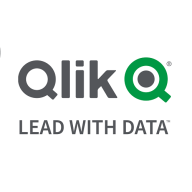

Qlik Replicate and Equalum compete in the data integration and transformation market. Equalum has the upper hand in user-friendliness and support, while Qlik Replicate leads in robust data handling capabilities and ROI efficiencies.
Features: Qlik Replicate boasts robust ELT capabilities, real-time change data capture, and extensive data integration options using log-based data capture. It efficiently manages diverse data tasks and seamlessly integrates from multiple sources. Equalum excels with its no-code platform, intuitive interface, and the integration of technologies like Kafka and Spark. It supports various workflows without impacting database performance, featuring comprehensive CDC and ETL capabilities.
Room for Improvement: Qlik Replicate needs enhancements in support and user-friendliness as users report issues with error tracking and connectivity. Improved documentation and simplified handling for dual destinations are desired. Equalum could expand its integration capabilities with more databases, including emerging technologies like blockchain. Enhancing CLI interfaces and adding robust scheduling features are also areas for growth.
Ease of Deployment and Customer Service: Qlik Replicate offers flexible deployment across public, on-premises, and hybrid clouds but struggles with support responsiveness and customer service, requiring escalations for complex issues. Equalum, similarly adaptable across environments, is credited for its prompt and direct support, offering proactive solutions without bureaucratic delays and effectively tackling customer challenges.
Pricing and ROI: Qlik Replicate's pricing can be a hurdle for small enterprises due to core-based licensing fees, though it provides notable ROI in efficiency and reduced storage costs. Equalum, while expensive initially, reduces development cycles significantly with flexible licenses. It is considered cost-effective compared to larger ETL tools, yielding substantial time savings and efficient solutions.

Equalum is a fully-managed, end-to-end data integration and real-time data streaming platform, powered by industry-leading change data capture (CDC) tech and modern data transformation capabilities (streaming ETL and ELT). Equalum's enterprise-grade platform features intuitive UI allowing you to build robust, real-time data pipelines in minutes.
Qlik Replicate is a data replication solution for replicating data from one source database to another for business intelligence software. It offers data manipulation and transformations, replication without impacting source databases, and ease of use without needing ETL. The solution is stable and user-friendly, with detailed logging and support.
Qlik Replicate has improved the organization by allowing each team to replicate their data into a single-source data location. The most important feature of Qlik Replicate is its ability to replicate and update records without needing a programmer.
We monitor all Data Integration reviews to prevent fraudulent reviews and keep review quality high. We do not post reviews by company employees or direct competitors. We validate each review for authenticity via cross-reference with LinkedIn, and personal follow-up with the reviewer when necessary.